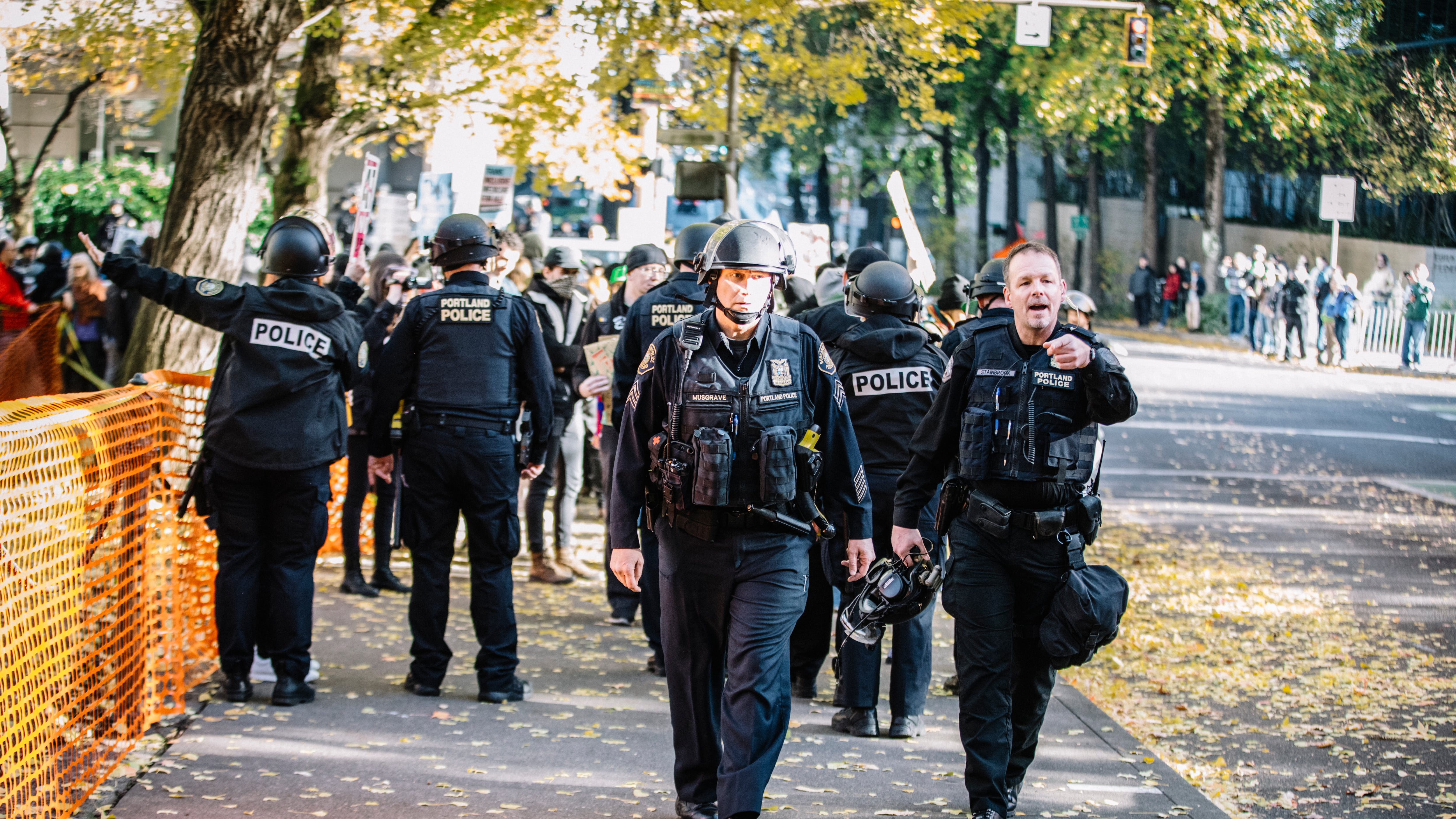A non-disclosure agreement drafted by Portland city officials for select media invited to observe police command staff during a protest would have barred reporters from sharing direct quotes without explicit permission.
The NDA, obtained by WW via a public records request, also restricts writing about any conversations between the city's lawyers and police.
After Mayor Ted Wheeler's communications team asked the Portland Police Bureau to allow reporters into its nerve center, the bureau worked with the City Attorney's Office to draft a non-disclosure agreement that would have significantly restricted reporters invited to observe the Incident Command Post during a Nov. 17 protest.
The mayor's office offered access to the command post to selected reporters to observe police command staff on Nov. 17 during a tiny "Him Too" protest organized by a far-right activist and a larger anti-fascist counter-demonstration.
The invitation came on the heels of Wheeler's failure to pass an ordinance that would have given police more authority to keep protest groups with a history of violence apart.
Reporters were asked to agree to several restrictions.
"Direct quotes of the assigned employee or any other member interviewed or conversed with are Confidential unless the assigned employee otherwise consents to and authorizes publication of their direct quote," the document says.
The contract also defined "confidential information" in broad terms: "any information disclosed by a PPB member to the Applicant, directly or indirectly, inadvertently or intentionally, in writing, orally, or by inspection of tangible objects (including, but not limited to, documents, prototypes, samples, and equipment), which is designated by stamp as "Confidential," "Proprietary," or which a PPB member states is confidential, or which is protected as confidential by Oregon Public Records laws or attorney-client privilege."
The proposed agreement goes on to list other information as off limits, including names and other personal details about crime victims, suspects, informants and undercover officers. There was no formal process to appeal the restrictions of the NDA if a reporter thought it had been applied improperly, though the city says the reporters could have had informal discussions about that.
A staff attorney for the American Civil Liberties Union says the mayor's intentions appear honorable.
"The goal of the mayor's office was providing public access to a system that perhaps has not been very public in the past and that is a very laudable goal," says Vera Eidelman, staff attorney with ACLU's speech, privacy and technology project. "The problem is when the details of how they try to do it results in no meaningful access at all."
Eidelman says the NDA's language was broad and ambiguous, which could lead to excessive self-censorship that the government didn't intend: "They basically chill much more speech than could actually be prevented post-publication."
Eidelman says for prior restraints to be constitutional, they must use "narrow, objective and definite standards that guide the government in deciding whether or not the speech can be spoken." She also says the government needs to set up a clear procedure to challenge the restraints on speech to "minimize the dangers of a censorship system."
The Police Bureau says it needed to protect federally-regulated data that includes peoples' names, birthdates, addresses and other personal information.
The Police Bureau has used an NDA at least once in the recent past.
A reporter for The Oregonian signed an agreement in October to gain behind-the-scenes access to the records division of the Portland Police Bureau for a story exposing the agency's slow response to public records requests. That NDA narrowly restricted the reporter from publishing confidential information handled by the records division, like personal details about crime victims, which is exempt from public disclosure.
"This was something we agreed to in order to allow a reporter to carry through on a reporting request she made, not as part of the city making an offer to orchestrate coverage for us," says Oregonian editor Betsy Hammond. "We would never agree, and did not, to the sort of NDA the bureau offered with regards to observing in the command center during a protest."
A PPB spokesman had no knowledge of other reporters shadowing a division of the bureau—like the Records Division—that accesses protected, confidential information that would have prompted the city to ask for an NDA. The bureau has, however, considered asking journalists to sign NDAs to enter parts of a police building that might house protected information.
The NDA for the Nov. 17 protest was drafted for a hand-picked set of reporters from KGW, The Oregonian and the Portland Tribune. All of the publications declined the offer, citing scheduling conflicts and concerns about the city's terms for access.
"We hear the concerns and hope media sees from our office it was about increasing access," says Sophia June, a spokeswoman for Wheeler's office. "We'll continue to do that no matter what."
